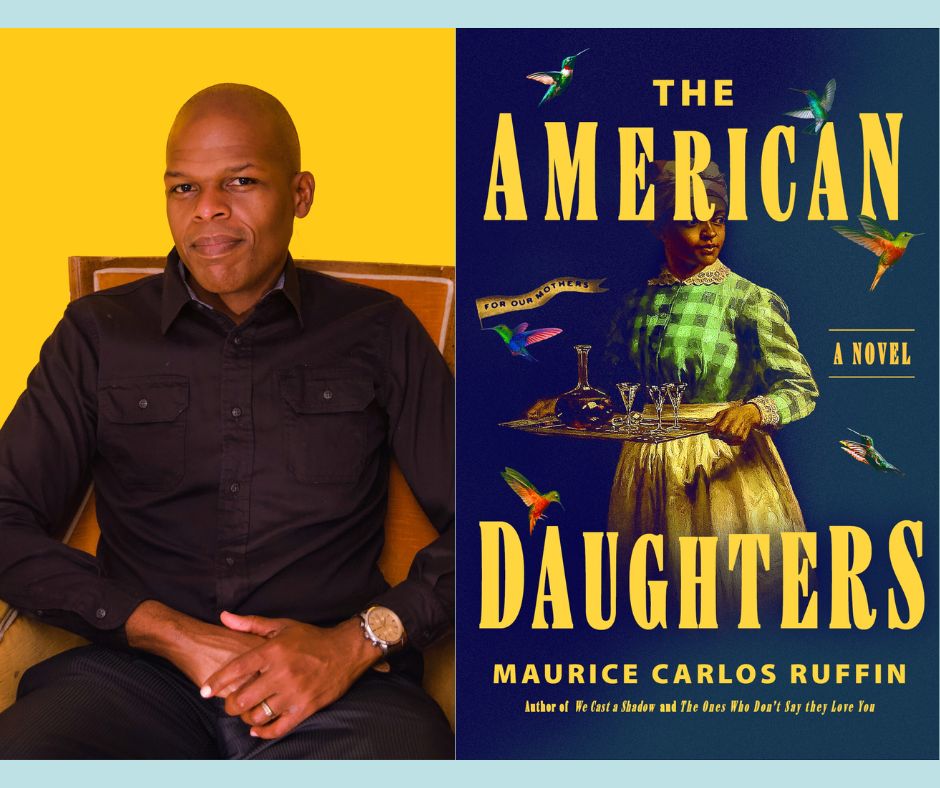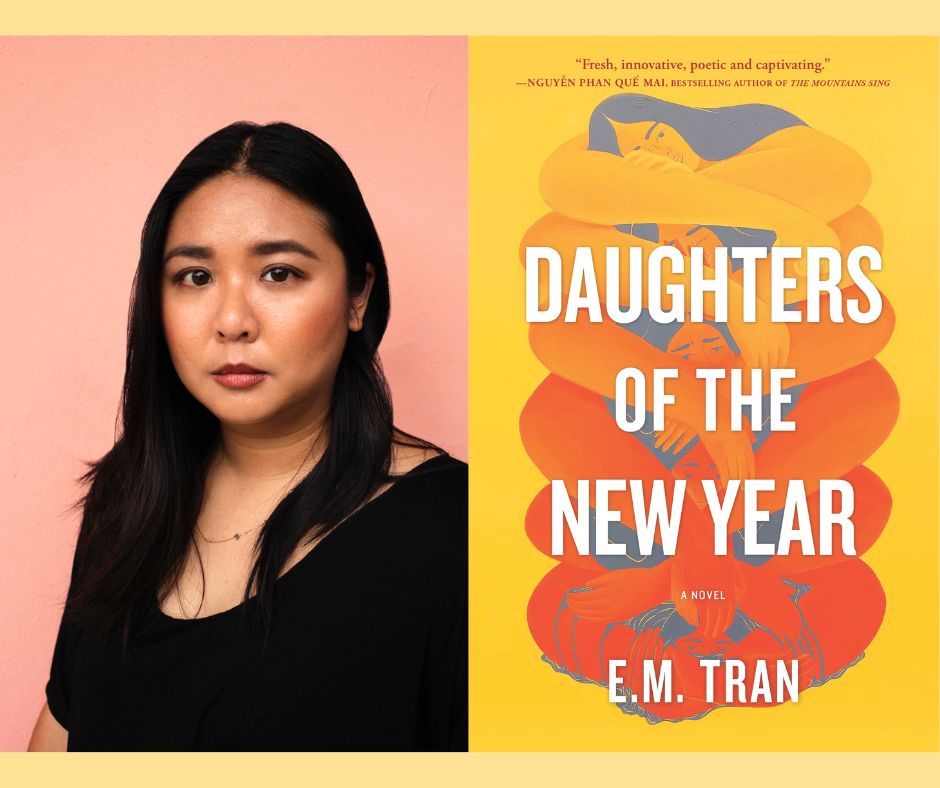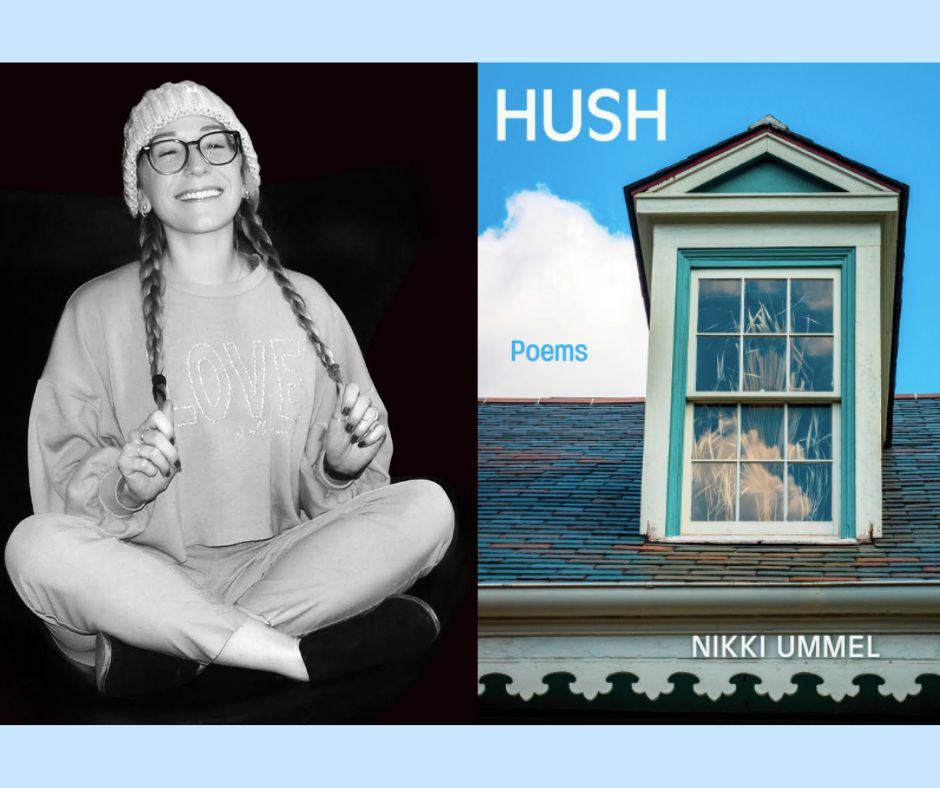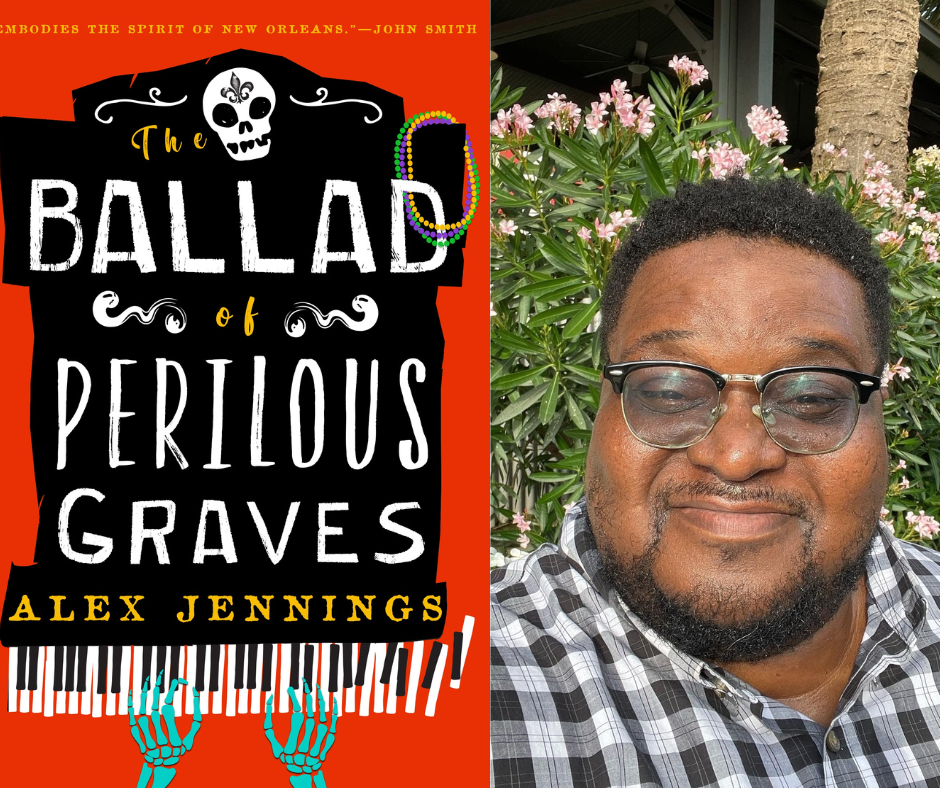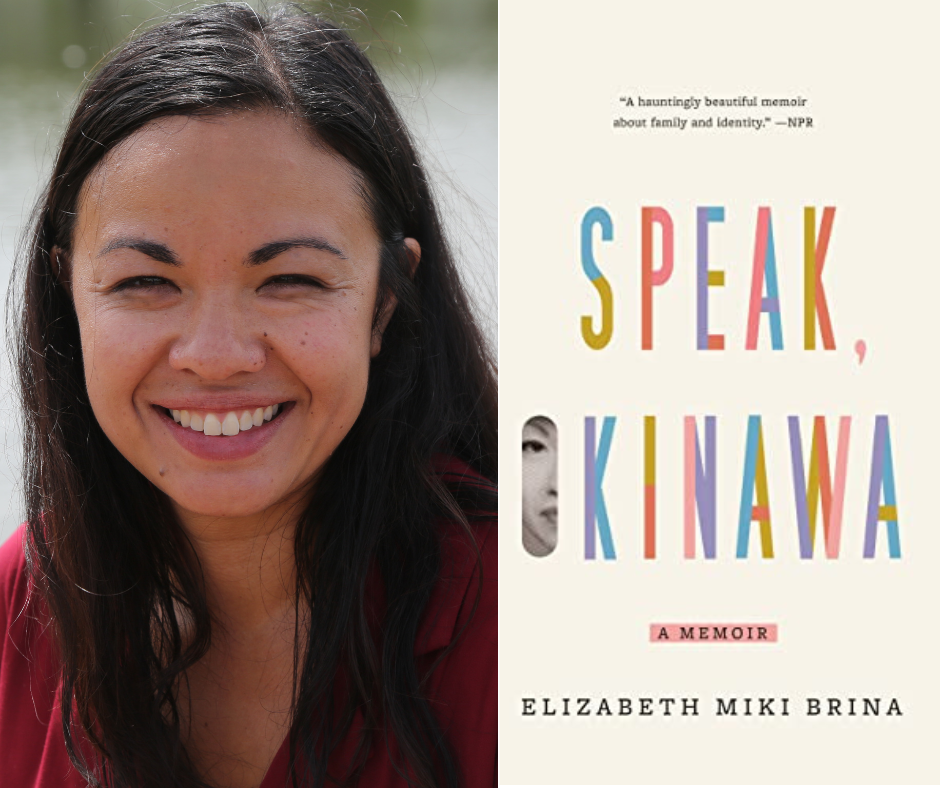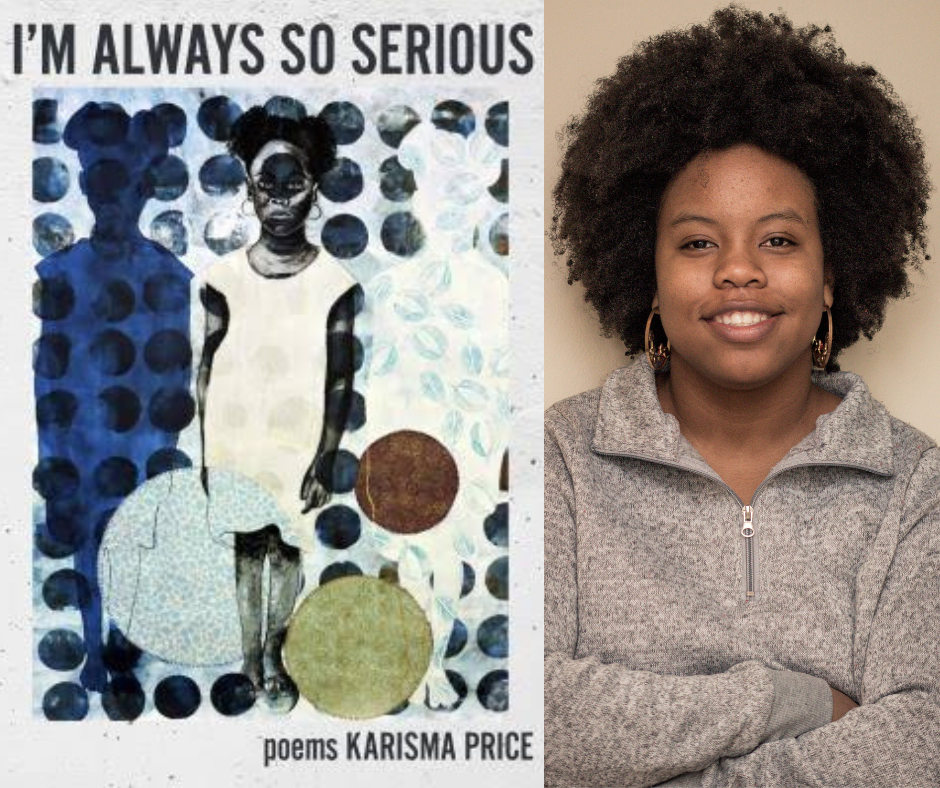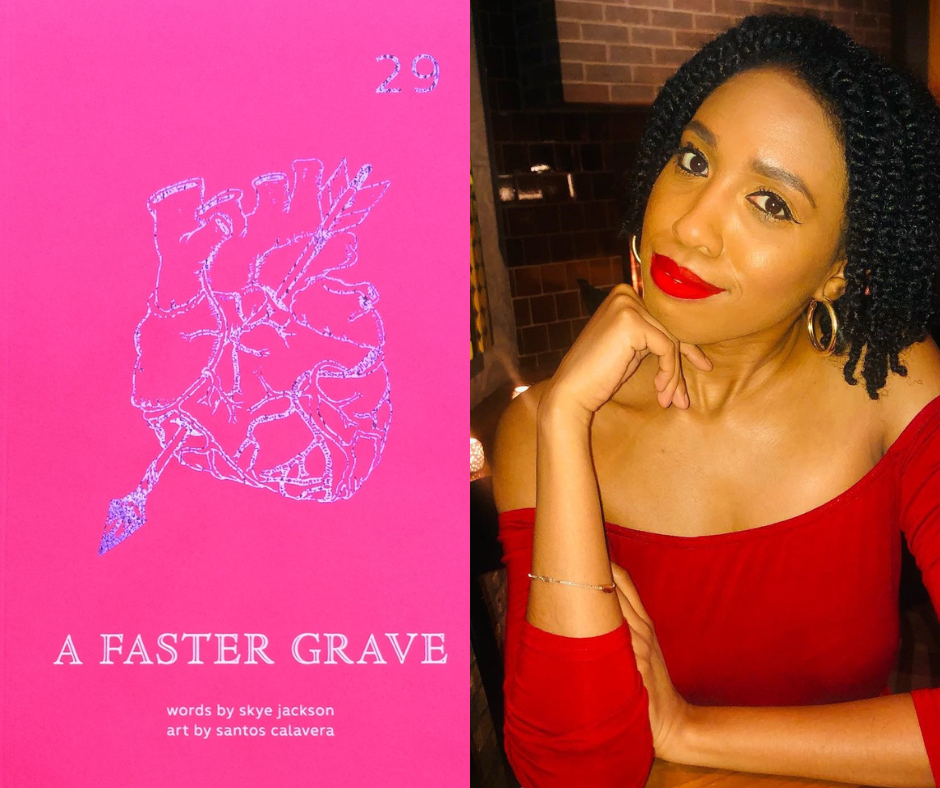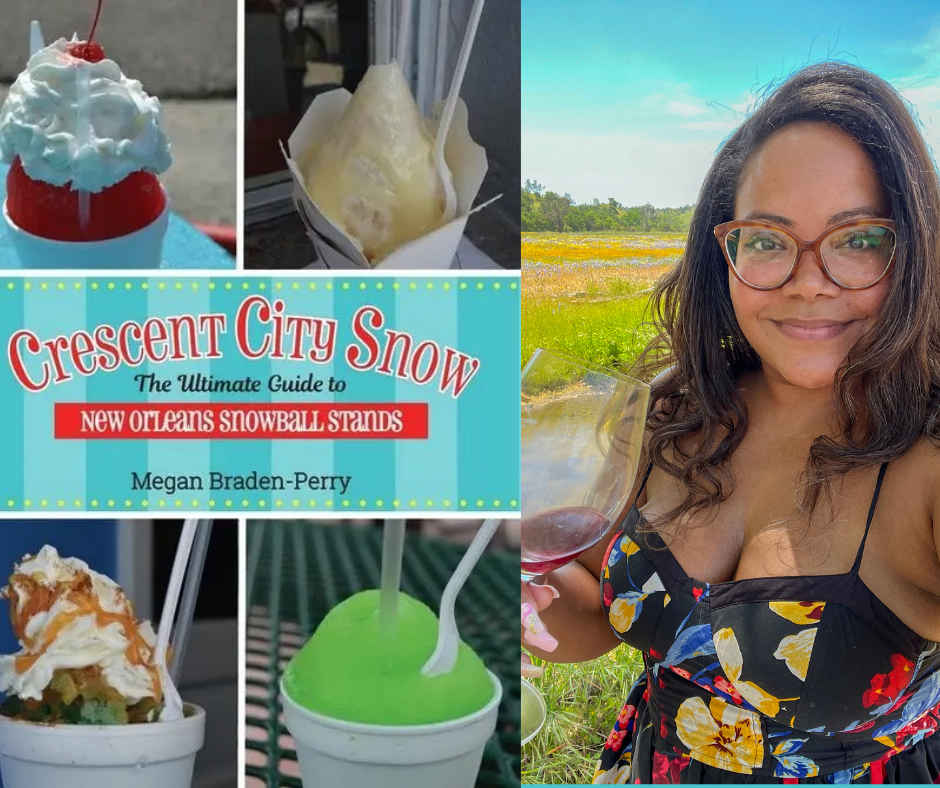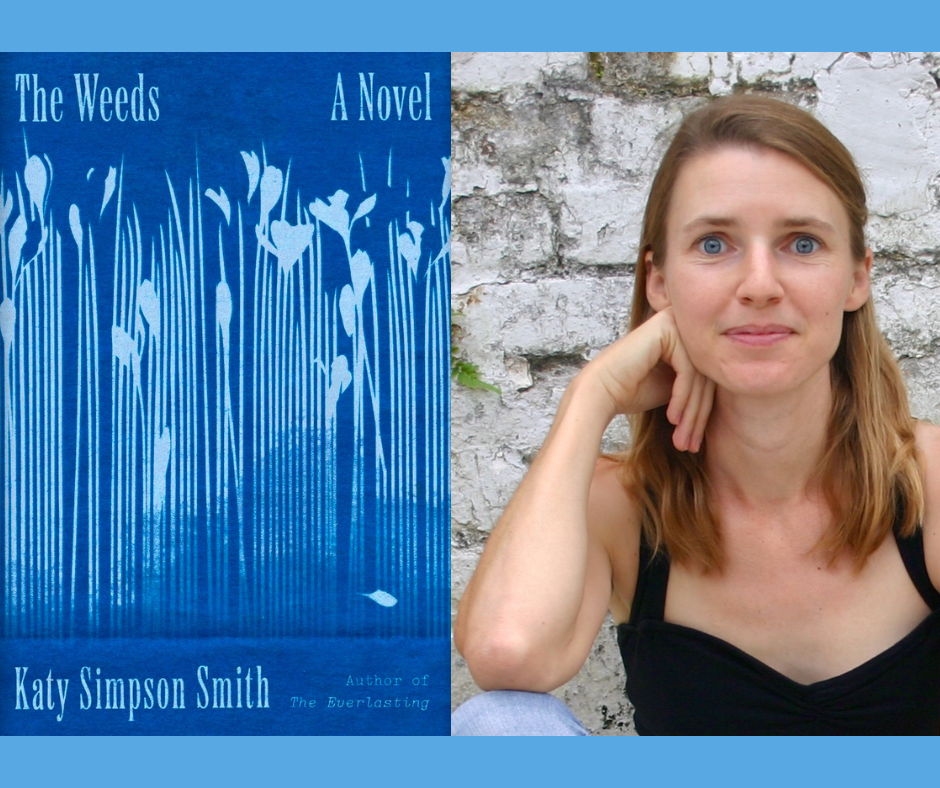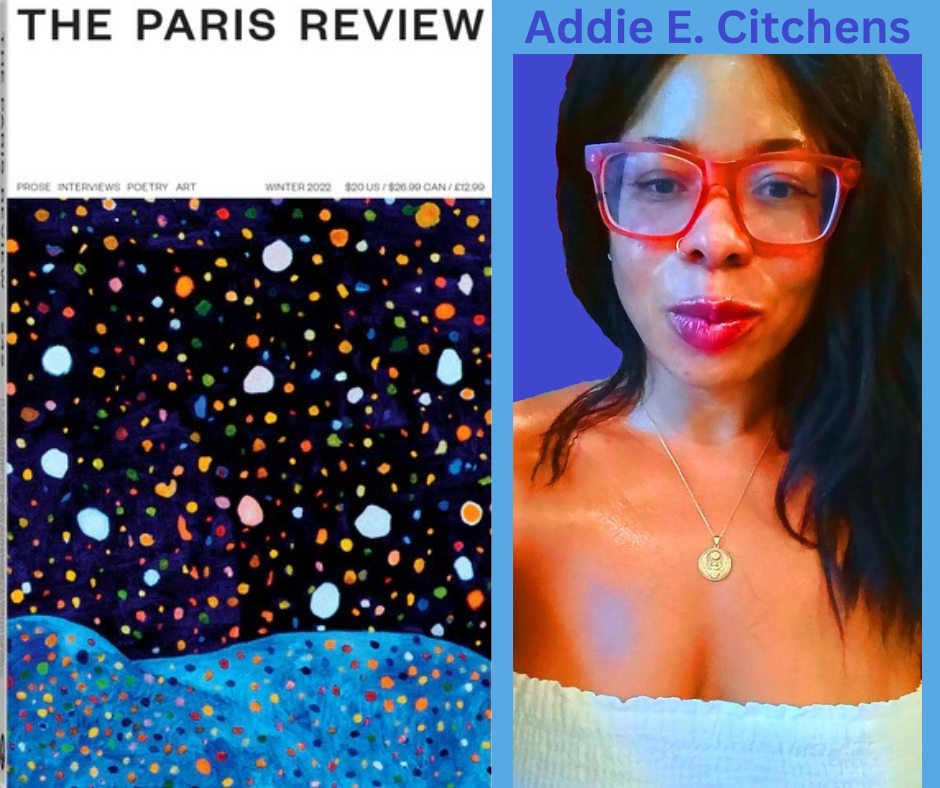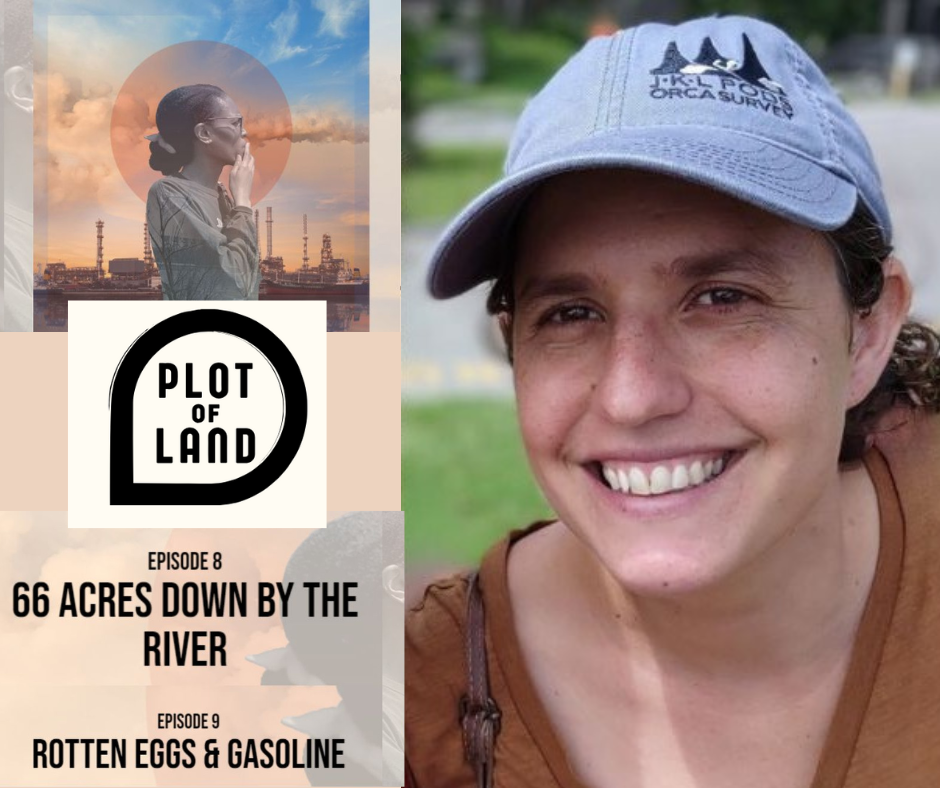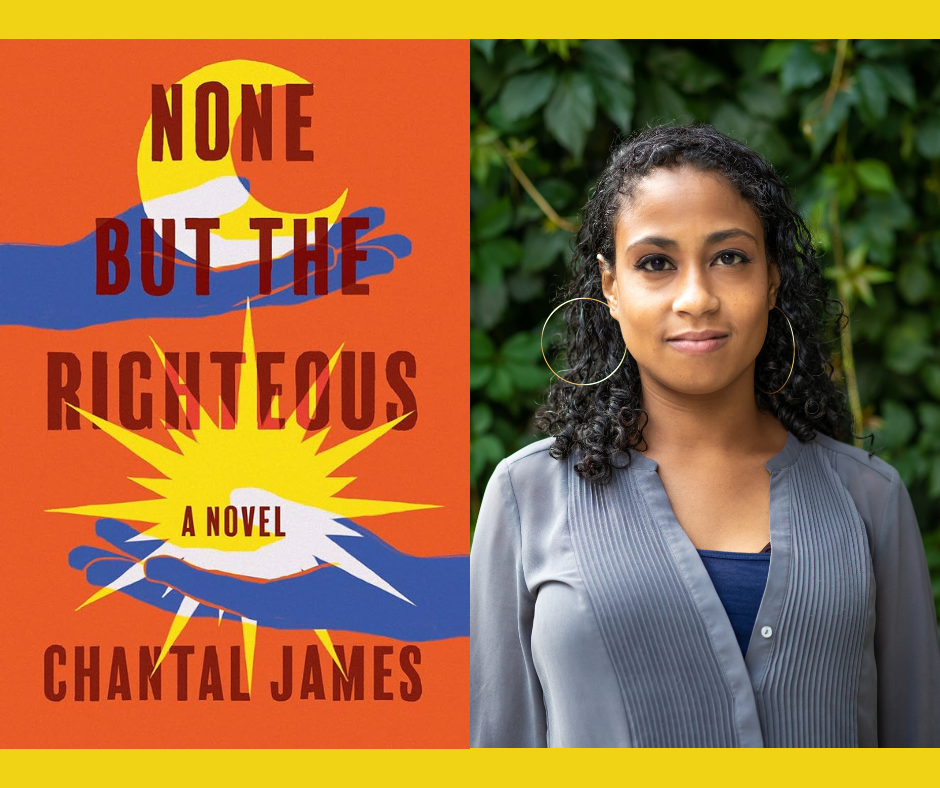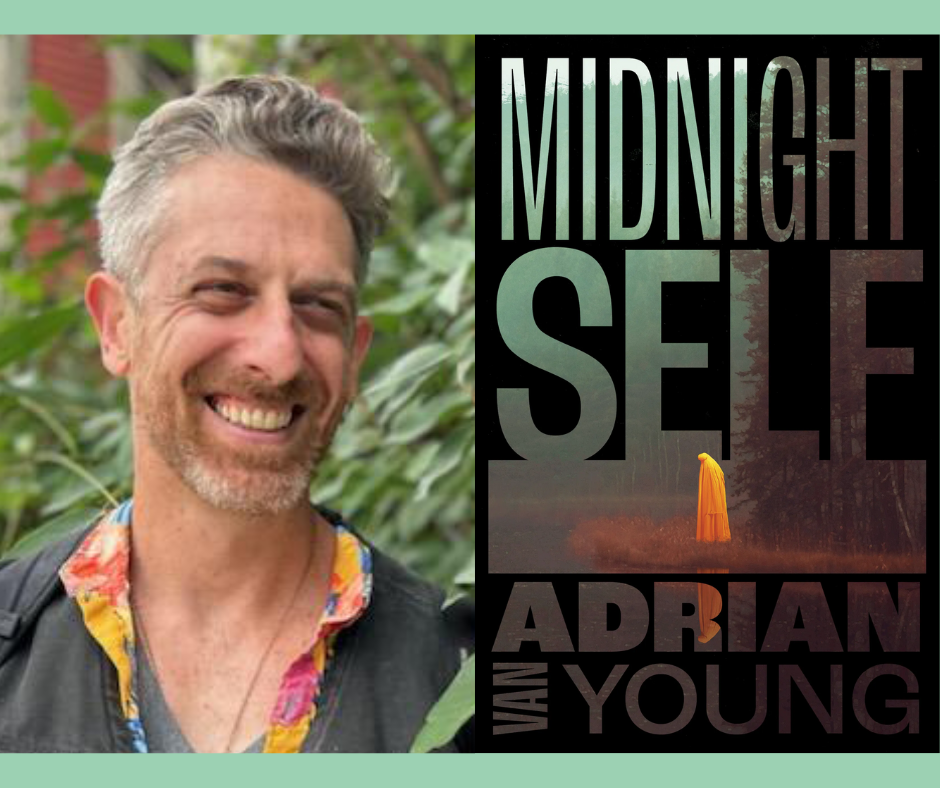COFFEE & CRAFT: FREE WRITING WORKSHOPS
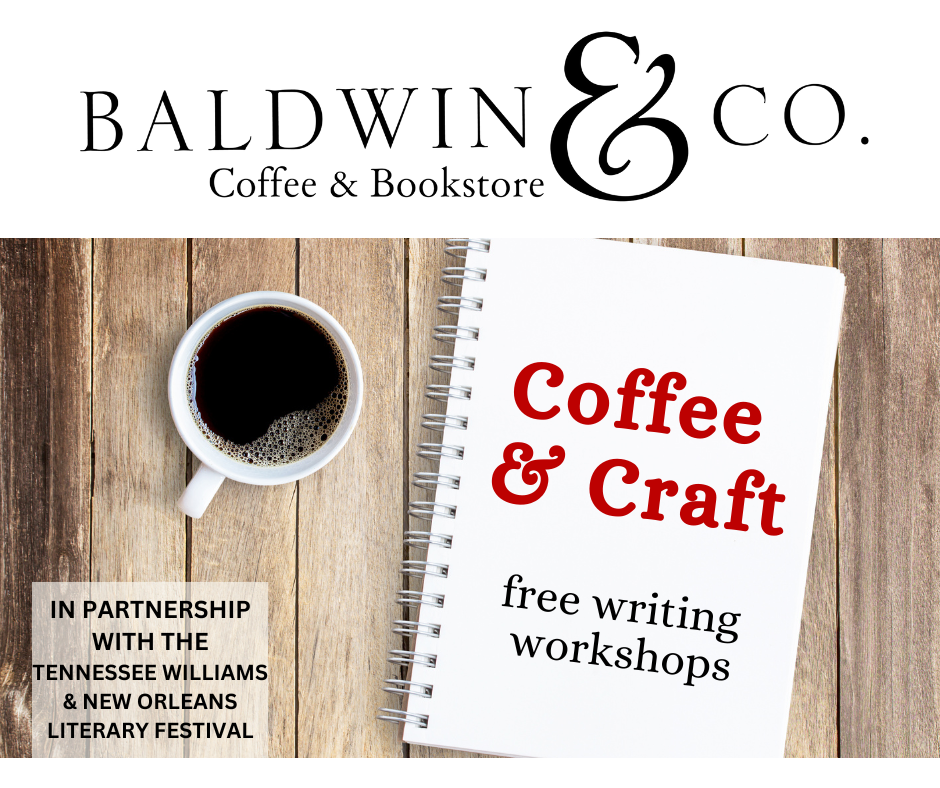
Coffee & Craft is a TWFest partnership with Baldwin & Co. Coffee and Bookstore, a Black-owned business that is part bookstore and coffee shop and part community center, where readers and writers come together in celebration of the written word. Baldwin & Co. also has a foundation focused on the importance of literacy and effective communication as fundamental tools for personal and professional growth.
TWFest is excited to partner with Baldwin & Co. to provide these free writing workshops featuring New Orleans writers. Topics cover a variety of genres, including poetry, novel writing, historical fiction, short stories, memoir, speculative fiction, and creative nonfiction. Sessions are focused on the craft of writing and are interactive and generative. Arrive ready to write and leave with pages of ideas and maybe a book signed by your favorite New Orleans writer!
Upcoming 2024 Coffee & Craft Dates
May 11, Annell López
June 8, Gabe Soria
April 13, Maurice Carlos Ruffin
"Bringing Your Fiction to Life"
This community-based workshop is for writers of all skill levels who want to learn about the basics of writing fiction as well as some advanced techniques. Most of the class will be seminar style with the instructor offering explanations of the elements of craft. Some time will be devoted to light writing exercises, so attendees should bring writing implements or a computer. Attendees are highly encouraged to ask questions throughout the class.
March 9, E.M. Tran
"Make It Weird: Crafting the uncanny or absurd into scene"
Have you ever had a character live their lives in everyday spaces – the office, the grocery store, their house, the car – and feel what you are writing is simply pushing your character through the tedious motions of life? In some ways, fiction is poignant because it can reflect reality and open vistas of understanding through realistic perspectives. But, isn't reality also weird? Sometimes the best way to invigorate a scene is to do just that: make it weird. In this session, we will talk about ways to inject the uncanny and absurd into our writing, how to notice and compile the strange we see in our daily lives, and exercises we can do if we feel our stories are stuck in the mundane world.
Thank you to our 2023 workshop leaders!
February 4, Alex Jennings
“Setting and Worldbuilding”
We think of worldbuilding as a consideration limited to imaginary-world fantasy or science fiction stories. But world building is something we do for ourselves every day the moment we wake up, remember our present circumstances, and start our day. I’ve lived in many different places over the years, from suburban Maryland to North Africa to New Orleans, and I'm intimately acquainted with the feeling of culture shock. Let’s look at what culture shock is, how it can be a valuable tool for building perspective, and rooting our stories in specific times and places.
March 4, Elizabeth Miki Brina
“Writing with Memory”
In this workshop, we will discuss the nature of memory and how memory naturally lends itself to story-telling, how the mere act of remembering is in and of itself an act of composing a narrative. We will also discuss some possible strategies for further composing these memories and giving them more shape on the page.
April 1, Karisma Price
"Aftermath and Conversation"
Usually, as writers, we really want to build up to that big important part of a poem, but I’m also really interested in what happens AFTER that. Usually when people think of endings, they think of silence, a completely closed, shut-off ending. But there’s so much power in what happens after we’ve said what we think we need to say.
We’ll talk about art, writing, memory, music, and how all of that can conjure memories, and how we can start writing about an event but also what happens after that and the feelings that occur that can make our writing more powerful.
May 13, Skye Jackson
“Love Poetry”
We’ll be reading contemporary poems and discussing structure, semantics, and delicious senselessness of love poems. We’ll talk about how we write them, how we live them, and how we find the necessary details to craft them in our ordinary and everyday lives. So bring your feels, your thoughts, and your memories as we dive into this subject.
June 10, Megan Braden-Perry
“Food Writing”
We’ll be talking about food writing, about freelancing, about writing in general, about snowballs (of course!), and have some Q & A time to answer your questions about food writing.
July 8, Katy Simpson Smith
“Writing Historical Fiction”
Is historical fiction really different from "contemporary" fiction? Do we assume an extra burden of responsibility when writing about the dead? In this craft session, we'll consider how to use research, how to experiment with voice, and how to think about the problem of “truth” in history, with examples ranging from Andrea Barrett's stories to Natasha Trethewey's poetry. Come prepared to write!
August 5, Addie Citchens
“Write Them Something They Can Feel!”
As writers, one of those things we constantly hear is “show, don’t tell.” That’s because besides conveying our ideas, it’s our goal to paint worlds with our words. But that’s easier said than done because our actual goal is to strike the proper balance of show/tell that works for the story WE’RE telling. The last thing that we want to do is invest our energy and creativity into a story that’s not giving what it’s supposed to be giving. So how can we be sure the picture we envision is the one our readers can see and, better yet, viscerally feel? Together we will practice finding the boldest, most precise, most elegant words to tell our stories more vibrantly than ever.
September 9, Anya Groner
“Making Meaning from Mystery”
We all have memories that stick with us for reasons we don't understand. We also have gaps in memories that can make personal writing feel impossible. In this workshop, participants will consider the value of uncertainty as we discuss two foundational skills of creative nonfiction: writing scene and making meaning.
October 7, Chantal James
“The Story is Out of Joint: Writing Nonlinear Narrative in Fiction”
As we seek ways of wording that decolonize western conventions it can be useful to tell our stories in ways that disrupt linear time. It can be argued that our experience of time is not linear and writing fiction that pieces apart the moments it's composed of in ways that don't follow a strict linear timeline can help us unlock new potential in our work. This workshop for all levels helps us approach narrative that may break with the linear.
November 11, Adrian Van Young
"The Craft of Fear: Generating Scares in Fiction"
So often in horror we're taught: you must scare! Yet so few resources are geared toward how to--the actual mechanics of how to scare people. Exploring concepts such as creating an atmosphere of palpable dread, subverting genre expectations, setting as character, the Uncanny, establishing temporal dislocation in a reader, and the interconnectedness of screaming and laughing, this craft-oriented workshop will focus on the finer points of generating fear in fiction. In addition to exploring these concepts, watching a few terrifying film clips and reading contemporary excerpts from authors such as Brian Evenson, Alice Sola Kim, Kelly Link, Victor LaValle, Karen Russell, Carmen Maria-Machado and others, we'll also embark upon a series of generative exercises that will set well you upon the path toward devising a chillingly effectively tale of your own.

